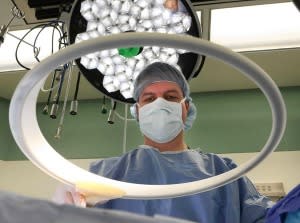
What Is Neurosurgery?
Neurosurgery provides specialized care of the nervous system which includes the spine, brain, and peripheral nerves. Our board-certified neurosurgeons manage a wide spectrum of brain and spine disorders with the best modern methods, including minimally invasive options.What Sets Us Apart
Learn More About Conditions We Treat
Here are of some of the conditions or diseases we treat. For more information on treatment options, please speak with your health care provider.
-
AneurysmAn aneurysm is a bulge in a blood vessel wall caused by a weakened area, most commonly, in the artery. We perform clipping procedures and coiling and stenting to treat an aneurysm.
-
Arteriovenous malformationsAbnormal tangles of blood vessels that can lead to complications like bleeding in the brain or spinal cord.
-
Brain TumorsBrain tumors are abnormal growths or masses of cancerous cells that develop in the brain.
-
Carotid stenosis or occlusionA narrowing or complete blockage of the carotid arteries, which are the main blood vessels that supply blood to the brain and face.
-
Carpal Tunnel SyndromeA condition that occurs when the median nerve, which runs through the carpal tunnel in the wrist, becomes compressed.
-
Chiari MalformationA structural defect in the brain where part of the cerebellum, the lower portion of the brain, extends into the spinal canal.
-
Chronic subdural hematomaCSDH is a collection of blood that forms between the brain and the outer membrane covering the brain. It can cause symptoms like headaches, confusion, and seizures.
-
Degenerative Cervical & Lumbar Spine DisordersThese neck and spine disorders can cause pain, numbness and weakness.
-
Degenerative Disc DiseaseThis condition refers to pain that is caused by a damaged disc.
-
Degenerative ScoliosisA type of spinal curvature that develops in adulthood due to wear and tear of the spine over time.
-
Dural arteriovenous fistulasAbnormal connections between arteries and veins in the dura, the tough membrane covering the brain and spinal cord, which can lead to neurological symptoms and complications.
-
Herniated DiscsA herniated disk occurs when the soft, jelly-like center of a disk in your spine pushes against and leaks out of its outer ring compressing nerves in the spine, leading to pain, numbness, or weakness in an arm or leg.
-
HydrocephalusBuildup of fluid in the brain.
-
Moyamoya diseaseA rare, progressive cerebrovascular disorder where the main arteries supplying blood to the brain narrow or become blocked. This can cause reduced blood flow which can lead to stroke, seizures, or other issues.
-
Spinal TumorsAbnormal growths that develop in or around the spinal cord; they can be cancerous or non-cancerous.
-
StrokeA stroke occurs when blood flow to the brain is interrupted or reduced.
-
Trigeminal NeuralgiaA chronic pain disorder that affects the trigeminal nerve, the main sensory nerve in the face. It causes sudden, intense, and excruciating pain that typically occurs on one side of the face.
-
Vascular lesions of the brain and spinal cordThere are many types of vascular lesions, abnormality of blood vessels, that can cause weakness, numbness, loss of coordination, seizures, headaches and more, depending on location and severity.
-
VasculitisA group of diseases characterized by inflammation of blood vessels. In the brain and spine, this inflammation can lead to damage that can cause poor neurological function including numbness, tingling, pain, weakness, or imbalance.
Finding Hope During A Health Crisis
Beth Flatley couldn’t have imagined that her life would take an unexpected turn with a health scare in February 2022. At Stamford Health, following surgery performed by Dr. Andrea Douglas, she underwent a monthslong rehabilitation to recover with the help of her team of caretakers. Watch the video to learn more about Beth’s story – and her inspiring recovery.

Meet Our Chief Of Neurosurgery, Dr. Andrea Douglas
As a board-certified neurosurgeon with a generalized cranial and spinal neurosurgical practice, Dr. Andrea Douglas specializes in minimally invasive spinal decompression and fusion techniques for degenerative, scoliotic, traumatic, and neoplastic spinal disorders of the cervical, thoracic, and lumbar spine. She has been on staff at Stamford Hospital since 2009 and was named chief of the division of neurosurgery in 2014.
LEARN MORE ABOUT DR. ANDREA DOUGLAS

Meet Our Providers
Neurosurgery FAQs
-
When is neurosurgery recommended, and how do you know if it’s the right option?Neurosurgery is recommended based on a careful assessment of symptoms, diagnostic tests, and the severity of the neurological condition. We’ll guide you through the decision-making process, ensuring you have a clear understanding of when neurosurgery is the optimal choice for your specific situation.
-
Can you get a second opinion from a neurosurgeon at Stamford Health if you’ve seen another neurosurgeon elsewhere?Absolutely. Seeking a second opinion is not only common but highly encouraged. Your health is a top priority, and we support your decision to explore multiple perspectives to make informed choices about your neurosurgical care.
-
How does minimally invasive neurosurgery differ from traditional open surgery?During your initial consultations, our neurosurgeons will walk you through the differences and benefits of minimally invasive neurosurgery. There are many benefits of less invasive techniques that often result in quicker recovery, smaller incisions, and reduced postoperative discomfort.
-
How can you prepare for neurosurgery at Stamford Health?Preparing for neurosurgery involves a comprehensive approach. Our guidance includes preoperative preparations, necessary tests, medications, and lifestyle adjustments tailored to ensure you’re well-prepared for a successful neurosurgical procedure.
-
What should you expect on the day of surgery?On the day of your surgery, our team will ensure you are well prepared for your procedure. From check-in procedures to meeting with our experienced neurosurgical team, we’ll guide you through the process to ensure you feel confident and supported.
-
How long does the recovery process typically take after neurosurgery, and what can you expect during this period?Recovery times vary, but we’ll provide a general timeline and discuss potential challenges and expected progression during the recovery period after neurosurgical interventions. Explore more about our recovery programs here.
-
Are there rehabilitation exercises or therapies recommended after neurosurgery?Rehabilitation is key post-neurosurgery. We’ll recommend exercises and therapies to support your recovery, along with strategies to stay motivated and engaged. Our team is here to guide you through each step of the rehabilitation process.


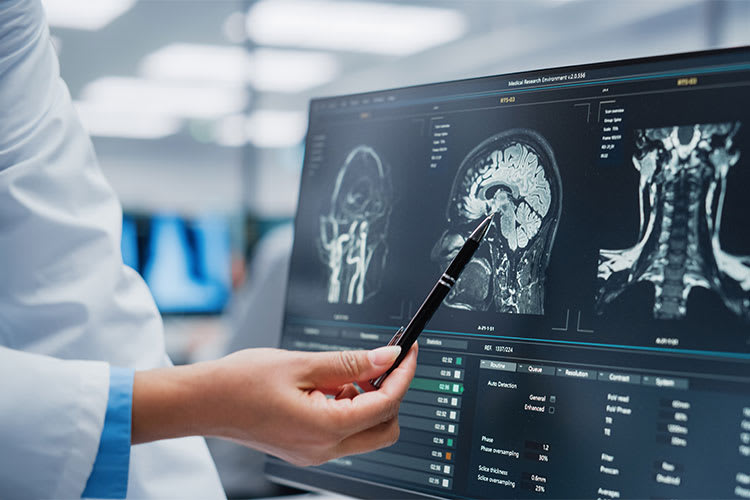



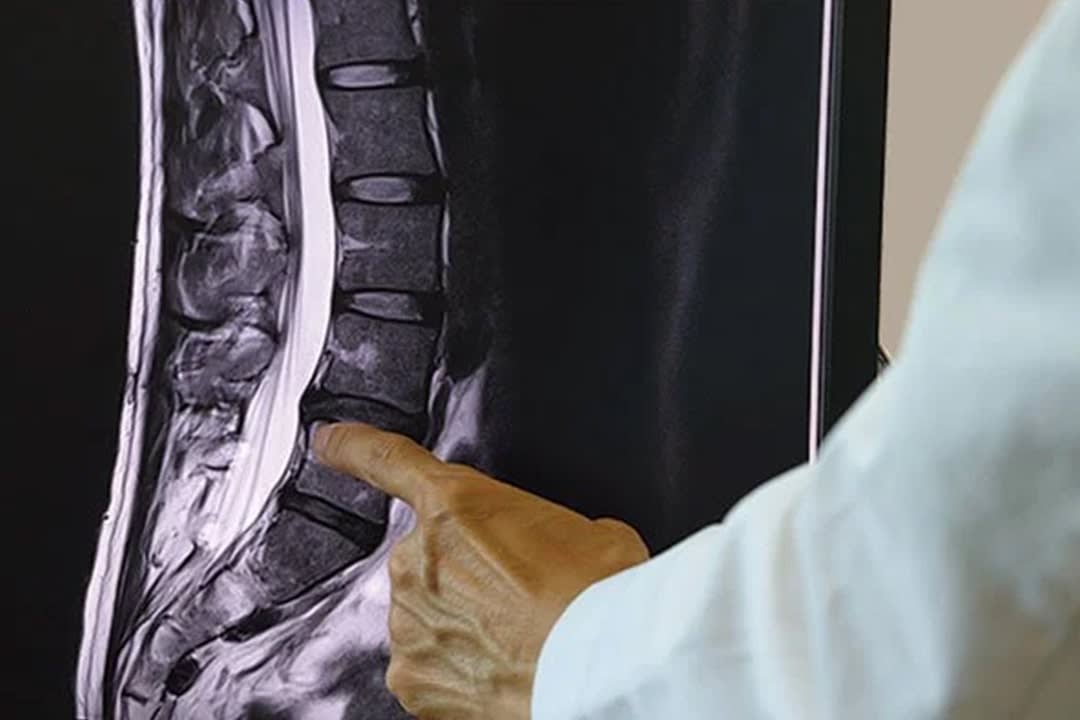
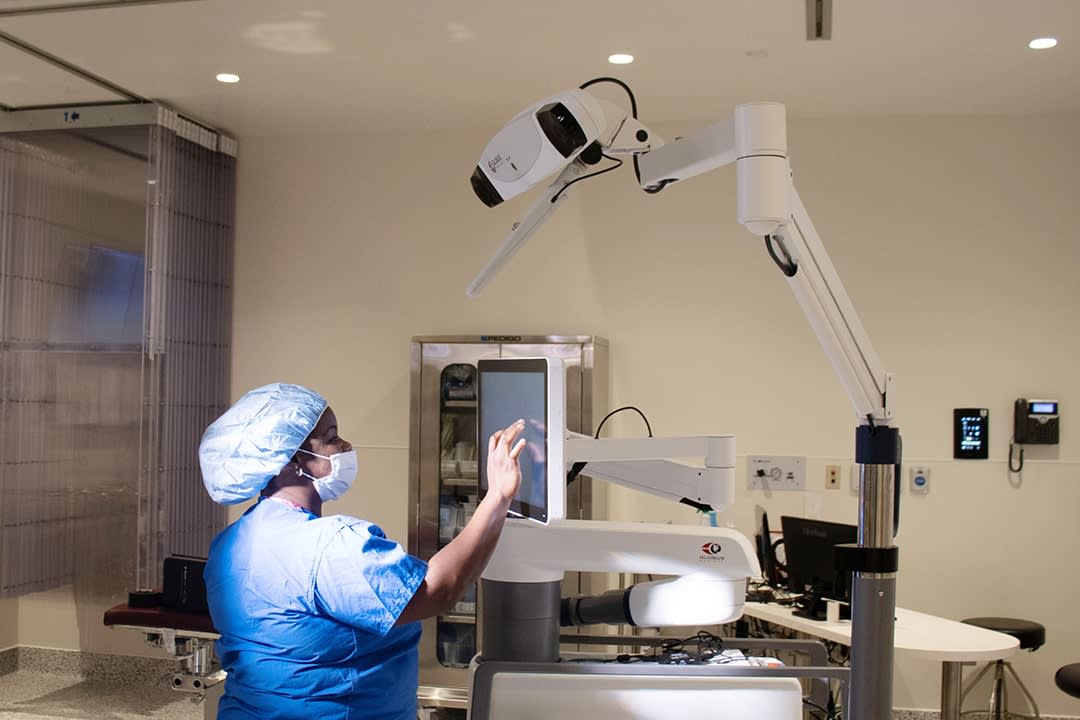







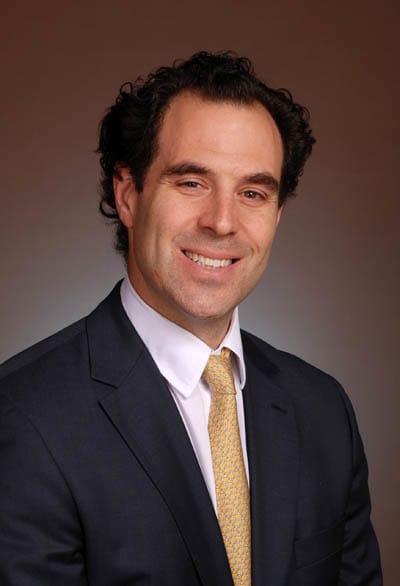

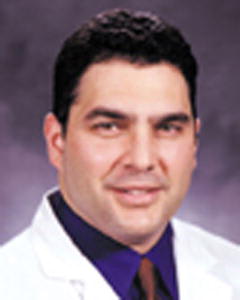








)





